Olives grown with passion and EM give high quality fruits to produce delicious and healthy oil.
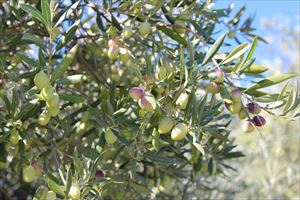
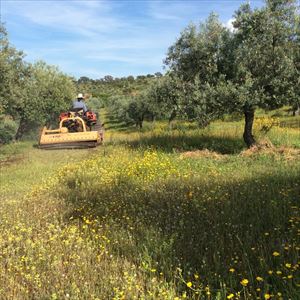
Mr. Julio Gallego Perales’s Olive farm is located in the west part of Spain, 200km away from Madrid. The area is known for producing olives, pork, and corn.
Ecolibor Olive Oil, organically certified, is named after “Ibor” (the name of the area) and “Eco,” and its logo mark was designed with olives and the arch that was made back in the Roman era in this region. Out of the 140ha-large farmland he owns, 8-10ha is used for growing 2000-3000 olive trees. The trees are spaciously planted, mixed with native cork and other plants. It is surrounded by wild forests and the ground is not weeded, so it is easy to differentiate Mr. Julio’s farm with other olive farms. The wild weed includes many kinds of herbs such as rosemary, lavender, oregano, and chamomile. It seems that Mr. Julio thinks these herbs have strong influence on the quality, especially the aroma, of his olive, just like they do to wine.
They are making two kinds of olives, Cornicabra and Manzanilla Ceraja. Manzanilla Ceraja is unique to this area and gives very high-quality fruit, but it does not yield much. So Mr. Julio adjusts the ratio and blends them according to each olive’s taste and quality every year.
Europe had a long winter with less sunshine last year (2013) and the yield and quality of the production was generally lower than usual. The harvest was about a month delayed.
However, his olives were as good as before and grew faster than other olive trees.
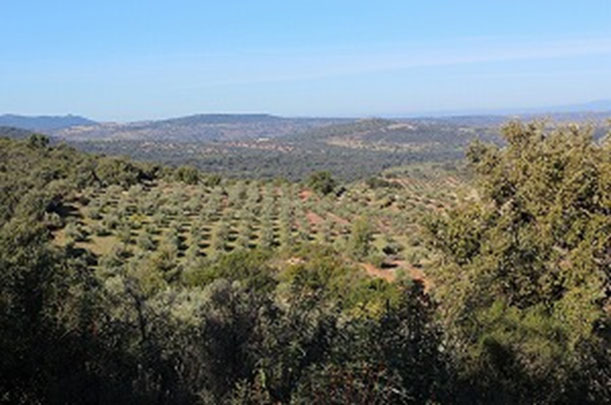
In his olive making, he mainly uses EM Technology for making compost and compost tea.
Compost is being produced by a compost company 10km away from the farm. Upon ordering, he brings Activated EM・1 to the company.
1-2 L/1㎥ of Activated EM・1 is sprayed onto compost, which is used when all the odor is gone after approximately 1-2 months of fermentation.
30 m3 of compost is produced with Activated EM・1 at a time, twice a year.
The compost factory usually makes compost with worms, as EM Technology and vermiculture works well together. Mr. Julio use this special compost after the harvest and before spring to process all the soil in his olive farm.
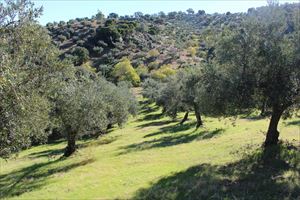
As for the compost tea, they put 25kg of compost, 1liter of Activated EM・1, and a bit of EM ceramics powder into 500L of water and then circulate the solution under 30-40℃ for 24 hours.
When the compost tea is ready, it is diluted to 1-5% and is sprayed to the olive trees (60L/tree).
The compost tea is sprayed depending on the condition of the olive trees and the application varies from 6 to 10 times a year.
The farm pumps water up from 3 different wells. The well water is used for irrigation after being filtered through EM ceramics filters.
Ecolibor olive oil is released on the market in two sizes 250ml and 500ml
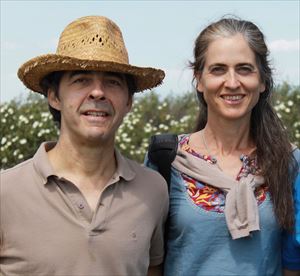
Mr. Julio, the olive farmer
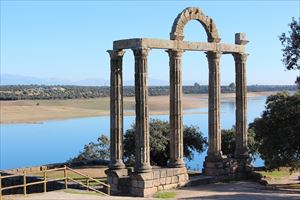
The arch, used in the logo design
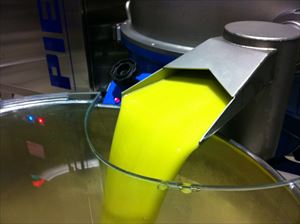
Cold pressed oil
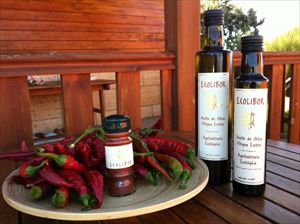
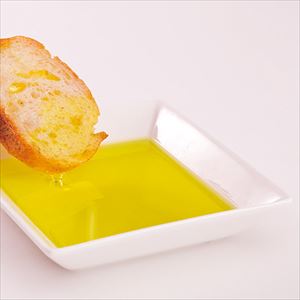
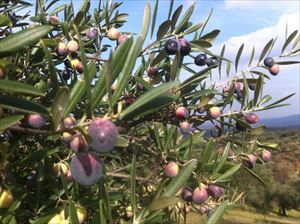
For further information, please contact our partner in Spain:
Frabelse S.L.U
Polígono Industrial Pulpí, Calle 4 y 6, 04640 Pulpí, Almería, Spain
TEL: +34-950-46-5150
FAX: +34-950-46-4848
E-mail: info@frabelse.es
2016.7.5 Updated